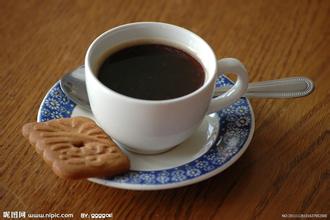Introduction to the characteristics and varieties of the manor producing area of Antigua Coffee in Guatemala
Guatemala faces Mexico to the north, El Salvador and Honduras to the south, the Pacific Ocean to the west and the Caribbean Sea to the east. The territory is full of volcanoes and the soil is full of nutrients. The warm sea breeze, tropical rain forests and alpine valleys in the Pacific Ocean are intertwined into a complex and changeable microclimate, brewing elegant and pleasant acidity and a balanced and comfortable coffee flavor.
Guatemalan coffee beans are mostly cultivated in high-altitude volcanic soils belonging to the most advanced Arabica varieties. Due to the long ripening period, the beans are medium and dense (Guatemalan coffee beans are graded not on the basis of particle size, but on the basis of shortcomings), and the bean color is dark turquoise. The unique sour taste of fragrance, mellow, sweetness and freshness is characterized by the aroma and taste of coffee beans hidden in its sour taste. Therefore, coffee beans with this characteristic can be called first-class coffee beans. The name of the product is suitable for the taste characteristics of baking degree.
Guatemalan coffee beans are mostly cultivated in high-altitude volcanic soils belonging to the most advanced Arabica (Arabica) variety. Due to the long ripening period, the beans are medium and dense (Guatemalan coffee beans are graded not on the basis of particle size, but on the basis of shortcomings), and the bean color is dark turquoise. The unique sour taste of fragrance, mellow, sweetness and freshness is characterized by the aroma and taste of coffee beans hidden in its sour taste. Therefore, coffee beans with this characteristic can be called high-quality coffee beans. The name of the product is suitable for the taste characteristics of baking degree.
The average elevation of dangerous countries is high, with coffee belts distributed above 1500 meters and between 14 and 16 degrees north latitude, it is the easiest to grow extremely hard beans, all of which are washed, of which 45% belong to fine grade, the proportion is quite high, and there are also a small amount of Robusta.
Guatemalan coffee has a strong aroma, even if you don't drink it, just smelling it is already a pleasure. Antigua coffee has a rich and velvety mellow, rich and lively aroma, and fine sour taste. When the attractive fragrance lingers on the tip of your tongue, there is an indescribable mystery. You may feel dull at the first sip, but as the coffee cools down, you will find it slightly sweet and be surprised by its depth.
Antigua coffee is popular with most coffee lovers only because of its distinctive aroma. Because it is planted in the hills of volcanoes, it can retain its own characteristics more than Costa Rica, the main reason is that it has more geographical and climatic advantages than Costa Rica. Guatemala is located in the tropics, but due to the relatively high altitude, the climate is mild, it is a subtropical climate. Under the influence of this climate, coffee trees blossom and bear fruit more slowly than coffee trees in other parts of the world. However, the mild climate and fertile soil make it an excellent environment for growing coffee
The coffee produced in Guatemala is one of the top coffee in the world, because Guatemala is a high-altitude volcanic terrain, and these volcanoes are the ideal places to grow coffee. Compared with other varieties of coffee, critics prefer this mixed flavor coffee with spicy flavor. The extra hard coffee beans here are a rare good coffee with full grains, delicious taste and balanced acidity. In addition, its giant coffee beans have attracted a lot of attention in Guatemala.
Coffee was really introduced into Guatemala in 1750 by Father Jesuit, and the coffee industry was developed by German colonists at the end of the 19th century. Today, most of the coffee industry's production takes place in the south of the country. There are seven major coffee producing areas in Guatemala, and the flavor of coffee produced in each area is different, but to sum up, Guatemalan coffee shows a mild and mellow overall texture, elegant aroma, and special and pleasant acidity similar to fruit acid, so it has become an aristocrat in coffee. Antigua Classic Coffee (AntiguaClassic) is highly recommended by global coffee connoisseurs.

Important Notice :
前街咖啡 FrontStreet Coffee has moved to new addredd:
FrontStreet Coffee Address: 315,Donghua East Road,GuangZhou
Tel:020 38364473
- Prev

Description of Panamanian Cupid Coffee Flavor with Fruit Flavor characteristics introduction to the degree of Baking and Grinding
Panama has been among the world's best coffee producers since three years ago, surprising countries that have been in the vanguard of developer production for many years. Panamanian coffee is mainly produced in the west near the Costa Rican border, producing the best washed coffee. Compared with coffee beans grown at low and middle elevations, the low temperature and stable climate in the high elevations of Panama
- Next

Taste of Costa Rican Saint Roman Coffee in volcanic soil Grinding degree of manor in producing area
S.H.B. It is a very hard bean with an altitude of more than 1500 meters above sea level, which means high quality Costa Rican coffee. Altitude has always been a problem for coffee growers. The higher the altitude, the better the coffee beans, not only because the higher altitude can increase the acidity of the coffee beans and thus increase the flavor, but also because the night temperature at the higher altitude is lower, which can make the trees grow slowly.
Related
- Detailed explanation of Jadeite planting Land in Panamanian Jadeite Manor introduction to the grading system of Jadeite competitive bidding, Red bid, Green bid and Rose Summer
- Story of Coffee planting in Brenka region of Costa Rica Stonehenge Manor anaerobic heavy honey treatment of flavor mouth
- What's on the barrel of Blue Mountain Coffee beans?
- Can American coffee also pull flowers? How to use hot American style to pull out a good-looking pattern?
- Can you make a cold extract with coffee beans? What is the right proportion for cold-extracted coffee formula?
- Indonesian PWN Gold Mandrine Coffee Origin Features Flavor How to Chong? Mandolin coffee is American.
- A brief introduction to the flavor characteristics of Brazilian yellow bourbon coffee beans
- What is the effect of different water quality on the flavor of cold-extracted coffee? What kind of water is best for brewing coffee?
- Why do you think of Rose Summer whenever you mention Panamanian coffee?
- Introduction to the characteristics of authentic blue mountain coffee bean producing areas? What is the CIB Coffee Authority in Jamaica?

